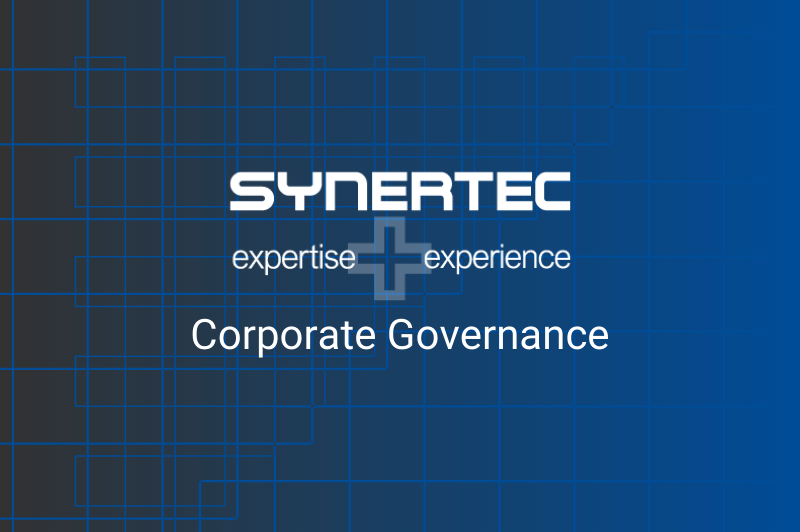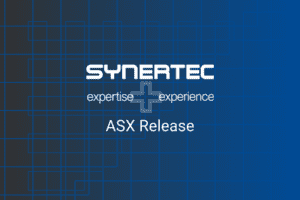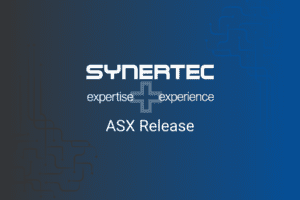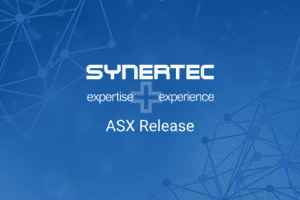SYNERTEC CORPORATION LIMITED
ARBN 161 803 032
1. Introduction:
Synertec considers that implementing an effective Whistleblower Policy will assist it to maintain a high standard of lawful and ethical conduct in its workplace and business activities.
We are committed to ensuring the protection of eligible whistleblowers who report concerns about misconduct or an improper state of affairs or circumstances within Synertec’s workplace or business activities.
This policy aims to:
- encourage disclosures to report an issue if a person reasonably believes someone has engaged in serious wrongdoing;
- set out information about the protections available to whistleblowers, including protections under the Whistleblower Protection Scheme;
- provide information about to whom disclosures that qualify for protection under the Whistleblower Protection Scheme may be made, and how they may be made;
- outline how the company will investigate disclosures that qualify for protection;
- provide information about how this policy is to be made available to officers and employees of the company.
Synertec will make this policy available to employees by providing a copy on Synertec’s public website, intranet and training system.
This policy applies:
(a) to Synertec, its Employees and Eligible Whistleblowers; and
(b) to disclosures made on or after 1 January 2020, regardless of when the alleged conduct occurred.
2. Terms and Definitions
2.1 APRA means the Australian Prudential Regulation Authority;
2.2 ASIC means the Australian Securities and Investments Commission;
2.3 Detrimental Conduct includes:
(a) dismissal of an employee;
(b) injury of an employee in their employment;
(c) alteration of an employee’s position or duties to their disadvantage;
(d) discrimination between an employee and other employees of the same employer;
(e) harassment or intimidation of a person;
(f) harm or injury to a person, including psychological harm;
(g) damage to a person’s property;
(h) damage to a person’s reputation;
(i) damage to a person’s business or financial position; or
(j) any other damage to a person.
2.4 Eligible Recipient means any one of the following:
(a) the individual appointed by Synertec to the position of Chairman from time to time;
(b) an officer or senior manager of Synertec or a related body corporate;
(c) an auditor, or member of an audit team conducting an audit, of Synertec or a related body
corporate;
(d) a legal practitioner for the purpose of obtaining legal advice; or
(e) any other individual prescribed by the law.
2.5 Eligible Whistleblower means a person who is currently, or was previously:
(a) an officer of Synertec (within the meaning of the Corporations Act 2001 (Cth));
(b) an employee of Synertec;
(c) an individual who supplies services or goods to Synertec (whether paid or unpaid) or that
individual’s employee;
(d) an individual who is an associate of Synertec;
(e) a relative or a dependant of any individual referred to in paragraphs 2.5(a) to 2.5(d) above;
or
(f) any other individual prescribed by law.
2.6 Emergency Disclosure means an emergency report of misconduct or an improper state of affairs
or circumstances within Synertec to a member of the Parliament of the Commonwealth or a State or the legislature of a Territory, or a Journalist in accordance
with clause 6.4 of this Policy.
2.7 Journalist means a person who is working in a professional capacity as a journalist for a
newspaper, magazine, radio or television broadcasting service or certain other electronic services similar to newspaper, magazine, radio or television that operate on a
commercial basis or by a body providing a national broadcasting service.
2.8 Misconduct or an improper state of affairs or circumstances means information which an
Eligible Whistleblower has reasonable grounds to suspect concerns misconduct or an improper state of affairs or circumstances in relation to Synertec or a related body corporate of Synertec including if the Eligible Whistleblower suspects Synertec or a related body corporate (or officers or employees of Synertec or a related body corporate) have engaged in conduct which:
(a) constitutes an offence against, or in contravention of, a provision of the Corporations Act
2001 (Cth), the Australian Securities and Investment Act 2001 (Cth) or an instrument made under one of those Acts;
(b) constitutes an offence against any other law of the Commonwealth that is punishable by
imprisonment for a period of 12 months or more (for example tax laws and foreign bribery laws);
(c) represents a danger to the public or the financial system; or
(d) is prescribed by the law.
2.9 Personal Work-related Grievance: are not covered under this policy and should be reported
internally to your direct manager or Human Resources in accordance with Synertec’s Grievance procedure.
“Personal Work-related Grievance” means a grievance about any matter in relation to the Discloser’s employment, or former employment, and that does not concern conduct of alleged conduct referred to in 2.8(a) to 2.8(d).
2.10 Public Interest Disclosure means the disclosure of a report of misconduct or an improper state
of affairs or circumstances to a member of the Parliament of the Commonwealth, a State or a legislature of Territory, or a Journalist in accordance with clause 5.3 of this Policy.
2.11 Victimisation means engaging in, or threatening to engage in, detrimental conduct against a
person because the perpetrator of the detrimental conduct believes or suspects the person or any other person made, may have made, proposes to make or could make a Whistleblower Disclosure and the belief or suspicion is the reason or part of the reason for the conduct.
Victimise has a corresponding meaning to victimisation.
Threats or threaten for the purposes of victimisation can be express, implied, conditional or unconditional and it is not necessary to prove that the person actually feared the threat would be carried out, but the perpetrator must have intended the other person to fear that the threat would be carried out or been reckless as to causing that fear.
2.12 Whistleblower Disclosure means a report by an Eligible Whistleblower to an Eligible Recipient
about misconduct or an improper state of affairs or circumstances within Synertec’s workplace or business activities.
2.13 Whistleblower Investigation Officer is an employee or officer of Synertec responsible for
investigating a Whistleblower Disclosure in accordance with clause 6 of this Policy. The current Whistleblower Investigation Officer will be listed on the intranet.
2.14 Employee means any current:
(a) Board Member;
(b) Director or officer (within the meaning of the Corporations Act 2001 (Cth));
(c) employee;
(d) contractor;
(e) supplier;
(f) employee of a contractor or a supplier; or
(g) associate, of Synertec.
3. Purpose
The purpose of this policy is to:
(a) encourage and promote a culture of openness and acceptance regarding the reporting of
misconduct within Synertec;
(b) encourage Eligible Whistleblowers to make Whistleblower Disclosures without fear of
victimisation; and
(c) properly manage reports of misconduct or an improper state of affairs or circumstances in a
lawful, fair, consistent and timely manner.
4. Principles
4.1 Synertec does not tolerate misconduct or an improper state of affairs or circumstances in its
workplace or business activities.
4.2 Employees:
(a) must not engage in misconduct or an improper state of affairs or circumstances in its
workplace or business activities on behalf of Synertec;
(b) must report any actual or suspected misconduct or an improper state of affairs or
circumstances in accordance with this policy;
(c) must cooperate with any investigation undertaken by Synertec under this policy or as
otherwise required at law; and
(d) must not victimise an Eligible Whistleblower as a consequence of a Whistleblower
Disclosure.
4.3 In addition to the obligations set out in clause 4.2 above, employees, eligible recipient and
Whistleblower Investigation Officers must comply with the confidentiality obligations set out in clause 8 of this Policy.
4.4 Synertec will:
(a) promptly review and investigate (where appropriate) a Whistleblower Disclosure, of which it
becomes aware, in accordance with this policy;
(b) to the extent such a report is required by law, report to ASIC, APRA, the Australian Federal
Police or State/Territory police (where appropriate) a Whistleblower Disclosure and cooperate with such entities;
(c) comply with the confidentiality obligations set out in clause 8 of this policy;
(d) take all reasonably necessary steps to ensure an Eligible Whistleblower is kept informed
about the progress and outcome of a Whistleblower Disclosure;
(e) take all reasonably necessary steps to ensure misconduct or an improper state of affairs or
circumstances, which are substantiated, ceases;
(f) take all reasonably necessary steps to remedy any wrongdoing or adverse effects of any
misconduct or circumstances which are substantiated;
(g) develop policies or strategies to minimise the recurrence of any substantiated cases of
misconduct or an improper state of affairs or circumstances;
(h) in accordance with this policy, promptly investigate allegations of breach of confidentiality
or victimisation under clause 8 of this policy;
(i) not victimise a person, and will take all reasonable steps to ensure its employees refrain
from engaging in such behaviour; and
(j) take appropriate disciplinary action against an employee, up to and including termination
of their engagement or employment, if they engage in substantiated misconduct or an improper state of affairs or circumstances, if they victimise a person or if they unreasonably fail to comply with this policy.
5. Making a Whistleblower Disclosure
Whistleblower Disclosure
5.1 It is Synertec’s preference that any concerns held by employees regarding suspected misconduct
or an improper state of affairs or circumstances be reported internally within Synertec. However, Synertec recognises that it will not always be appropriate to make an internal report of suspected misconduct or an improper state of affairs or circumstances.
5.2 An Eligible Whistleblower may make a report of misconduct or an improper state of affairs
or circumstances:
(a) verbally or in writing to an Eligible Recipient;
(b) verbally or in writing to ASIC or APRA or a prescribed Commonwealth authority [1].
[1] If the disclosure relates to tax and may assist the ATO in carrying out its functions, a disclosure can also be made directly the Commissioner or Synertec’s tax agent.
Public Interest Disclosure
5.3 An Eligible Whistleblower may make a Public Interest Disclosure if:
(a) at least 90 days has passed since the Eligible Whistleblower made a report of misconduct or
an improper state of affairs or circumstances to ASIC, APRA or another body that is prescribed by law under clause 5.2(b) of this Policy; and
(b) the Eligible Whistleblower does not believe, on reasonable grounds, that action is being
taken, or has been taken, to address the misconduct or an improper state of affairs or circumstances; and
(c) the Eligible Whistleblower has reasonable grounds to believe that making a further
disclosure of the information in accordance with this clause would be in the public interest; and
(d) after the end of the period referred to in clause 5.3(a), the Eligible Whistleblower gave to the
body they had given their previous disclosure a written notification which included sufficient information to identify the previous report of misconduct or an improper state of affairs or circumstances, and stated that the Eligible Whistleblower intended to make a Public Interest Disclosure; and
(e) the extent of the information disclosed is no greater than necessary to inform of the
misconduct or an improper state of affairs or circumstances.
Emergency Disclosure
5.4 An Eligible Whistleblower may make an Emergency Disclosure if:
(a) the Eligible Whistleblower made a report of misconduct or an improper state of affairs or
circumstances to ASIC, APRA or another body prescribed by law under clause 5.2(b) of this Policy;
(b) the Eligible Whistleblower has reasonable grounds to believe that the information concerns
a substantial and imminent danger to the health or safety of one or more persons or to the natural environment;
(c) after the Eligible Whistleblower’s report referred to in clause 5.4(a) the Eligible
Whistleblower then gave written notification to the body who received the previous report referred to in clause 5.4(a) which written notification includes sufficient information to identify the previous report of misconduct or an improper state of affairs or circumstances and states that the Eligible Whistleblower intends to make an Emergency Disclosure; and
(d) the extent of the information disclosed is no greater than necessary to inform of the
substantial and imminent danger associated with the misconduct or an improper state of affairs or circumstances.
5.5 An Eligible Recipient who receives a Whistleblower Disclosure:
(a) must promptly review the disclosure; and
(b) must either:
(i) ensure the disclosure is investigated (where appropriate) by a Whistleblower
Investigation Officer as set out in clause 6 of this Policy; or
(ii) report the alleged misconduct or an improper state of affairs or circumstances to ASIC,
APRA or the Australian Federal or State/Territory Police (where appropriate) and cooperate with such entities so far as is lawfully required; and
(c) must not disclose information obtained directly or indirectly because of the Whistleblower
Disclosure if it would identify the Eligible Whistleblower or any information that is likely to lead to the identification of the Eligible Whistleblower
unless the disclosure is made:
(a) with the Eligible Whistleblower’s consent;
(b) to ASIC, APRA, the Australian Federal or State/Territory Police (where appropriate);
(c) to a legal practitioner for the purposes of obtaining legal advice or representation in
relation to a Whistleblower Disclosure; or
(d) to a person prescribed by law; and
(d) must not victimise an Eligible Whistleblower as a consequence of a Whistleblower
Disclosure.
6. Investigation
6.1 Synertec must investigate all Whistleblower Disclosures and will do so in accordance with this
clause 6.
6.2 An Eligible Recipient who receives a Whistleblower Disclosure must report the Whistleblower
Disclosure to a Whistleblower Investigation Officer to investigate the Whistleblower Disclosure. The Whistleblower Investigation Officer must be a different person to the Eligible Recipient.
6.3 In the event that the Whistleblower Disclosure involves or relates to the person nominated as the
Eligible Recipient in clause 6.2 above, as the Whistleblower Investigation Officer, the Whistleblower Disclosure must instead be investigated by the person holding the position of:
(a) Managing Director within Synertec; or
(b) Chief Financial Officer within Synertec.
6.4 A Whistleblower Investigation Officer:
(a) must apply principles of natural justice to an investigation into a Whistleblower Disclosure,
which will include:
(i) the investigation being conducted promptly, fairly and impartially;
(ii) if reasonably necessary for the purposes of investigation, the matters which are the
subject of investigation being made known to the person who is the alleged subject of a Whistleblower Disclosure, excluding information about the identity of the Eligible Whistleblower and information that may lead to identification of the Eligible Whistleblower; and
(iii) providing the person who is the subject of a Whistleblower Disclosure with sufficient
time to consider the allegations and an opportunity to respond;
(b) must take all reasonable steps to reduce the risk that the Eligible Whistleblower will be
identified as a result of the Whistleblower Disclosure;
(c) must maintain a confidential record of the allegations and processes concerning an
investigation into a Whistleblower Disclosure;
(d) subject to clauses 6.4(g) and 7.7 of this Policy, and after consultation with the Eligible
Whistleblower, will provide a report to Chair of the Board or Chief Executive Officer, who must make a determination about whether the misconduct or an improper state of affairs or circumstances is substantiated;
(e) may report a Whistleblower Disclosure to ASIC, APRA, the Australian Federal Police or
State/Territory police (where appropriate) and must cooperate with such entities so far as is lawfully required;
(f) so far as is lawful, must take all reasonable steps to ensure an Eligible Whistleblower is kept
informed about the progress and outcome of their investigation into the Whistleblower Disclosure;
(g) subject to clauses 6.4(d), 6.4(e) and 7 of this Policy, and so far as is lawful, must maintain
confidentiality about the identity of an Eligible Whistleblower and any details of a Whistleblower Disclosure which they are aware of (or have a reasonable suspicion of); and
(h) must not engage in any conduct which constitutes victimisation.
7. Protection and confidentiality
7.1 If an Eligible Whistleblower makes a Whistleblower Disclosure:
(a) they will not be subject to any civil, criminal or administrative liability (including disciplinary
action) for making the disclosure; and
(b) no contractual or other remedy may be enforced, and no contractual or other right may be
exercised, against them on the basis of the disclosure; and
(c) where a Whistleblower Disclosure is an Emergency Disclosure, Public Interest Disclosure, or
a disclosure under clause 7.2(b) of this Policy, then subject to the Corporations Act 2001 (Cth) and the Taxation Administration Act 1953 (Cth) the information is not admissible in evidence against the Eligible Whistleblower in criminal proceedings or proceedings for the imposition of a penalty (unless the proceedings relate to the Whistleblower Disclosure in question being false).
7.2 The Corporations Act 2001 (Cth) (and possibly also the Taxation Administration Act 1953 (Cth) if
the matter involves tax) protects people from victimisation.
7.3 The protections in this Policy and under the Corporations Act 2001 (Cth) do not apply to
allegations or complaints of Personal Work-related Grievances that do not involve victimisation.
7.4 Synertec and Employees must not victimise an Eligible Whistleblower for making a Whistleblower
Disclosure.
7.5 Subject to clauses 7.6 and 7.7 below, without the Eligible Whistleblower’s consent, the following
will not be disclosed:
(a) the Eligible Whistleblower’s identity; or
(b) information that is likely to lead to identifying the Eligible Whistleblower.
7.6 Despite clause 8.5 of this Policy, a person may lawfully disclose the identity of an Eligible
Whistleblower, or information that is likely to lead to identification of an Eligible Whistleblower, without the permission of the Eligible Whistleblower to:
(a) ASIC, APRA or the Australian Federal and state/territory Police;
(b) ASIC, APRA, the Australian Federal and state/territory Police and Commonwealth, state or
territory authorities for the purpose of assisting that authority in the performance of its functions or duties;
(c) such other body or authority that is prescribed by law; or
(d) a legal practitioner for the purpose of obtaining legal advice.
7.7 Information that is likely to lead to identification of an Eligible Whistleblower may be disclosed if
it is reasonably necessary to investigate the report of misconduct or an improper state of affairs or circumstances and the discloser takes all reasonable steps to
reduce the risk of identifying the Eligible Whistleblower.
7.8 An Eligible Whistleblower may make a complaint to an Eligible Recipient or to one of the
applicable entities set out in clause 8.1 below if they are concerned about a breach of confidentiality or if they believe theyare being, or have been, victimised.
7.9 A Employee who makes a Whistleblower Disclosure but does not have reasonable grounds to
suspect the information the subject of the Whistleblower Disclosure concerned misconduct or an Improper state of affairs or circumstances, against Synertec or another Employee:
(a) is not entitled to the protections available for Eligible Whistleblowers under the
Corporations Act 2001 (Cth) or other applicable State and Federal legislation;
(b) is not afforded any protection under this Policy;
(c) may be subject to disciplinary action, including up to termination of their engagement
or employment; and
(d) may be guilty of an offence.
7.10 The making of a Whistleblower Disclosure will not prevent Synertec from commencing or
continuing with any investigation into allegations of misconduct against the Eligible Whistleblower or any management of the Eligible Whistleblower’s performance that do not relate to the Eligible Whistleblower making a Whistleblower Disclosure.
8. Support
8.1 Eligible Whistleblowers should be aware that they can contact the below listed bodies for advice
or support if they have a concern that they have been victimised or that the confidentiality obligations in this Policy have been breached, however they will be unlikely to be protected by this Policy if they made a Whistleblower Disclosure to the listed bodies below.
To be protected by this Policy, Whistleblower Disclosures must be made to Eligible Recipients.
(a) Federal complaints bodies

(b) State complaints bodies

Revision History:






